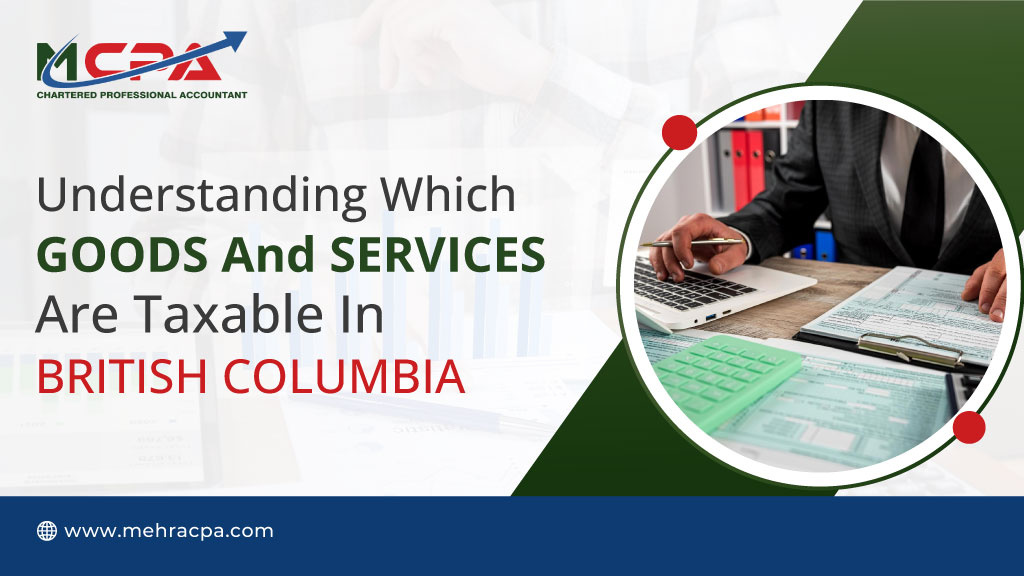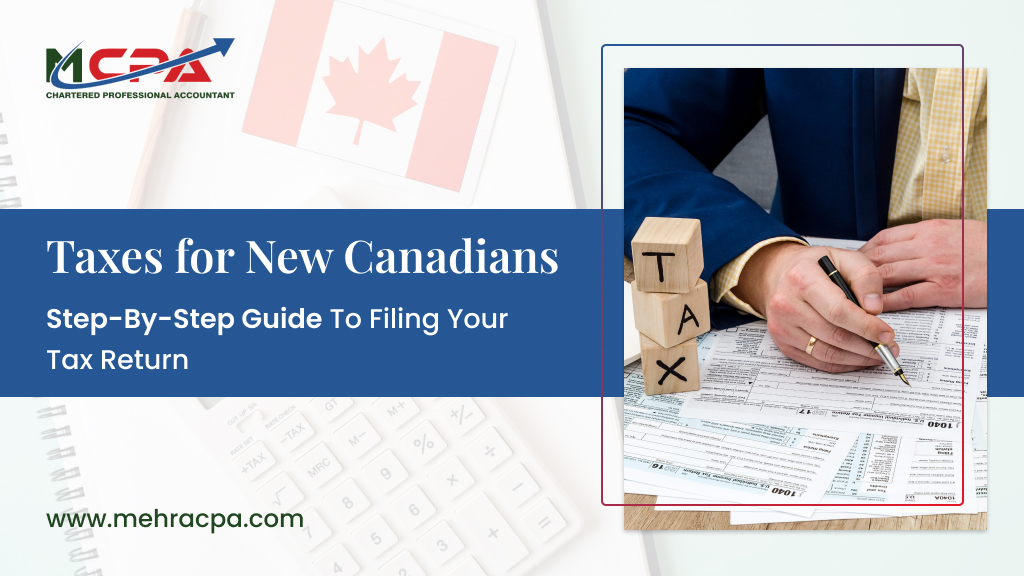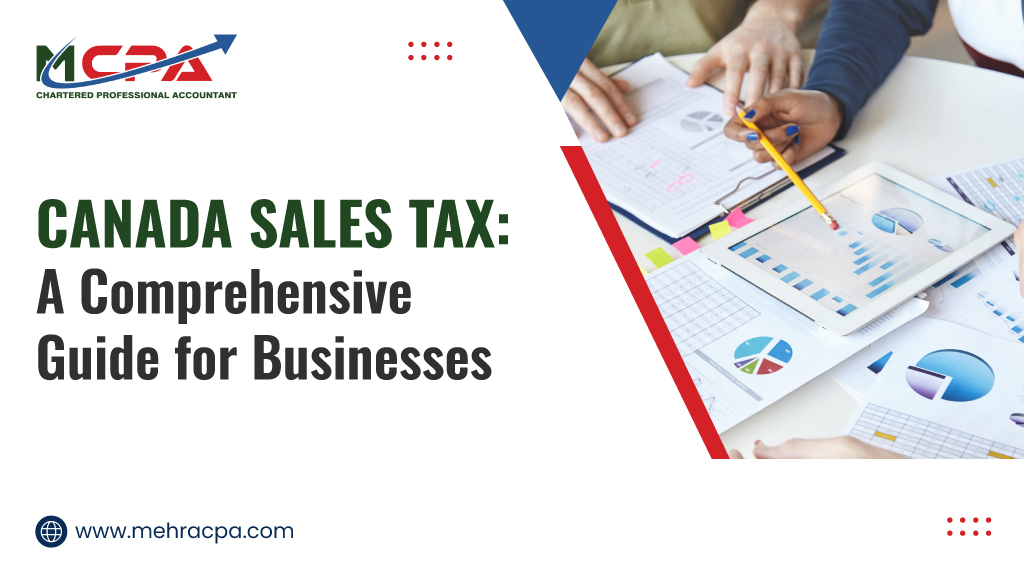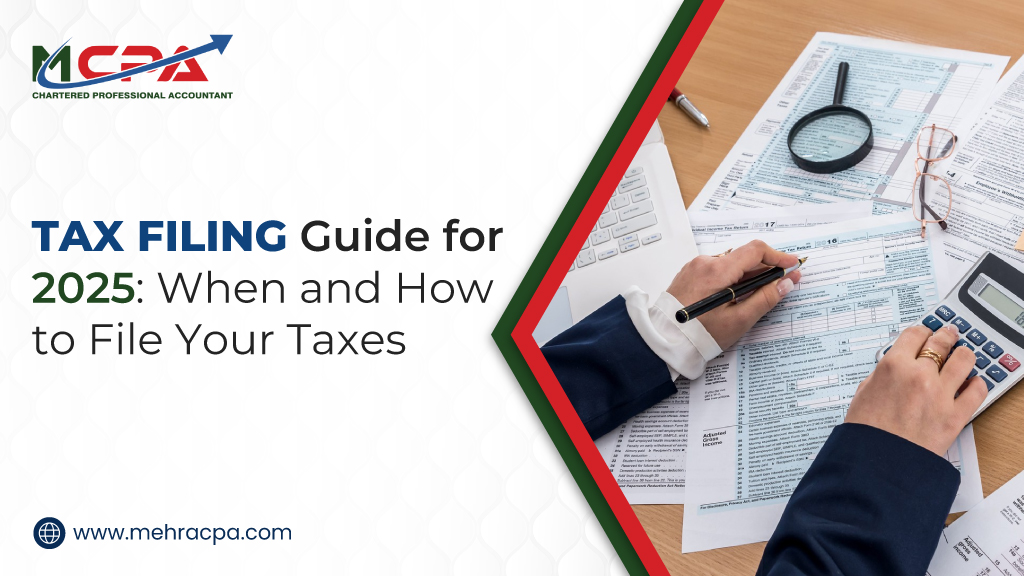
Recent Post
2025 Canadian Tax Deadlines: Everything You Need to Know
Every year, Canadians are required to file their taxes on…
Taxes for New Canadians: Step-by-Step Guide to Filing Your Tax Return
Moving to Canada is an exciting journey filled with new…
Canada Sales Tax: A Comprehensive Guide for Businesses
What is Sales Tax? If you own a business in…
Tax Filing Guide for 2025: When and How to File Your Taxes
Filing taxes can seem like a daunting task, but with…
British Columbia (BC) has a distinct system for determining which goods and services are taxable. For businesses and consumers alike, understanding these tax regulations is essential. In this comprehensive guide, we delve into the intricacies of BC’s taxation system, covering various goods and services and their corresponding tax liabilities. By comprehensively addressing the nuances of these taxes, we aim to provide clarity and ensure compliance for all stakeholders. Whether you are a resident or a business owner, this guide is your key to navigating the complex tax landscape in BC.
Provincial Sales Tax (PST) in British Columbia
The Provincial Sales Tax (PST) is a retail sales tax that applies to the purchase or lease of goods and certain services in British Columbia. Currently, the PST rate is set at 7%. However, there are specific rules and exceptions that apply to different categories of goods and services. Understanding these exceptions can help businesses avoid costly mistakes and consumers plan their purchases more effectively. This section will break down the essentials of PST, making it easier for everyone to grasp.
Goods Subject to PST
- Tangible Personal Property: This includes all physical items such as electronics, furniture, clothing, and vehicles. If you purchase a laptop or a new sofa, you will incur a 7% PST. Businesses need to accurately categorize these items to ensure proper tax collection. For consumers, being aware of this tax can help in budgeting for major purchases.
- Leased Goods: Goods that are leased rather than purchased outright are also subject to PST. This includes rental equipment, leased vehicles, and rented electronics. Leasing agreements should clearly outline the tax implications to avoid confusion. Consumers should also be aware of how leasing can affect the overall cost of using these goods.
- New Residential Housing: PST is applicable to newly constructed or substantially renovated homes. However, resale homes are generally exempt from PST. This distinction is important for both home buyers and real estate professionals. Understanding these details can impact financial planning and real estate transactions.
Services Subject to PST
- Legal and Accounting Services: Professional services like legal advice and accounting are subject to PST. Businesses providing these services must include PST in their billing to comply with tax laws. Clients should be aware of these additional costs when engaging in professional services.
- Telecommunications Services: This includes charges for internet, television, and telephone services. Service providers must correctly apply PST to their charges, ensuring transparency in their billing. Consumers should review their bills to ensure the correct application of PST.
- Software and Digital Products: Downloadable software, applications, and digital products are taxable under PST regulations. Companies in the tech industry must stay updated on these rules to maintain compliance. Customers purchasing digital products should factor in these taxes when making their decisions.
Specific Goods and Services Exempt from PST
- Food and Beverages: Most groceries, including basic food items, are exempt from PST. However, prepared food, such as meals from restaurants, is taxable. This distinction helps lower the cost of essential groceries. Consumers and businesses alike benefit from understanding which food items are exempt.
- Prescription Drugs and Medical Devices: Items such as prescription medications, insulin, and medical devices like wheelchairs are exempt from PST. This exemption reduces the financial burden on individuals requiring medical supplies. Pharmacies and medical equipment providers should ensure these exemptions are clearly communicated.
- Children’s Clothing and Footwear: Clothing and footwear designed for children under 15 years of age are exempt from PST. This helps families manage expenses related to children’s necessities. Retailers must correctly classify these items to ensure compliance with tax exemptions.
- Educational Materials: Textbooks and educational materials required for school or university courses are typically PST-exempt. This reduces the cost of education for students and families. Educational institutions and bookstores should provide clear information on these exemptions to their customers.
Goods and Services Tax (GST) in British Columbia
In addition to the PST, British Columbia is also subject to the Goods and Services Tax (GST), a federal tax that applies to most goods and services in Canada at a rate of 5%. The GST is generally added to the price of taxable goods and services at the point of sale. Understanding GST is crucial for both businesses and consumers to ensure accurate pricing and budgeting. This section will clarify which items are affected by GST and the implications for transactions in BC.
GST-Applicable Goods and Services
- Consumer Goods: Most consumer goods, including electronics, household items, and clothing, are subject to the 5% GST. Businesses must incorporate this tax into their pricing strategies. For consumers, being aware of GST helps in understanding the final cost of purchased items.
- Professional Services: Services provided by professionals such as lawyers, accountants, and consultants are taxable under GST regulations. Service providers need to accurately charge GST to comply with federal tax laws. Clients should anticipate these additional costs when budgeting for professional services.
- Transportation Services: Taxi fares, ride-sharing services, and commercial transportation fees are subject to GST. Transport companies must include GST in their fares to remain compliant. Passengers should factor in GST when calculating the total cost of their journeys.
- Hotel Accommodations: The cost of staying at hotels, motels, and other short-term accommodations includes GST. Hospitality providers must ensure GST is applied correctly to their charges. Travelers should consider GST when planning accommodation expenses.
GST Exemptions
- Basic Groceries: Similar to the PST, basic grocery items are exempt from GST. This exemption helps keep the cost of essential food items affordable. Consumers benefit from understanding which groceries are exempt to better manage their shopping budgets.
- Residential Rent: Rent for residential housing is not subject to GST. This helps keep housing costs more manageable for renters. Landlords should clearly communicate this exemption to tenants to avoid misunderstandings.
- Medical Services: Most health and dental care services are exempt from GST. This exemption reduces the overall cost of healthcare services. Healthcare providers must be aware of these exemptions to ensure proper billing practices.
- Educational Services: Tuition fees for primary, secondary, and post-secondary education are GST-exempt. This helps lower the financial burden on students and their families. Educational institutions should provide clear information about GST exemptions to their students.
Harmonized Sales Tax (HST) Considerations
British Columbia does not currently use the Harmonized Sales Tax (HST), which combines GST and PST into a single tax. However, it’s essential to note that some provinces in Canada do employ the HST system, which can influence businesses that operate interprovincially. Understanding the differences between PST, GST, and HST is crucial for businesses with operations in multiple provinces. This knowledge ensures accurate tax compliance and prevents legal issues.
Compliance and Registration for Businesses
PST Registration
Businesses that sell or lease taxable goods, or provide taxable services, must register for a PST account. This includes out-of-province businesses that sell goods to BC residents. Registration ensures compliance and allows businesses to collect and remit PST appropriately. Failure to register can result in penalties and interest charges. Ensuring timely and accurate registration is vital for legal and financial health.
GST Registration
Similarly, businesses with annual sales exceeding $30,000 must register for a GST account. This requirement extends to most businesses, including those operating online. Proper registration allows businesses to collect and remit GST accurately. Staying compliant with GST registration is crucial to avoid legal repercussions and maintain smooth operations.
Filing and Remittance
PST Filing
Registered businesses must file PST returns, detailing the amount of tax collected and remitted to the provincial government. Filing frequency (monthly, quarterly, or annually) is determined based on the business’s total PST payable. Accurate filing helps businesses stay compliant and avoid penalties. Utilizing accounting software can simplify the process and ensure timely submissions.
GST Filing
GST returns must be filed with the Canada Revenue Agency (CRA). Businesses can opt for different filing frequencies, often quarterly or annually, depending on their revenue levels and business needs. Timely GST filing helps businesses manage their cash flow and avoid interest charges. Professional accounting assistance can be beneficial for businesses with complex transactions.
Rebates and Refunds
PST Refunds
Businesses and individuals may be eligible for PST refunds under specific circumstances, such as tax paid in error or returned goods. Claims must be submitted with appropriate documentation to the BC Ministry of Finance. Understanding the refund process can help businesses recover costs efficiently. Proper record-keeping is essential to support refund claims.
GST Rebates
The CRA offers GST rebates for specific situations, such as new housing rebates for individuals who purchase a new home or substantially renovate an existing one. Knowing the eligibility criteria for GST rebates can result in significant savings. Consulting with a tax professional can help navigate the complexities of rebate applications.
Impact on Consumers
For consumers, understanding which goods and services are taxable helps in budgeting and making informed purchasing decisions. It is crucial to note the additional costs that taxes can impose on various products and services. Being aware of tax exemptions can also help consumers save money. Educating oneself about these tax regulations is an important step toward financial literacy.
Impact on Businesses
Businesses must ensure they comply with both PST and GST regulations to avoid penalties and interest charges. Proper registration, collection, and remittance of taxes are essential components of operating within British Columbia’s legal framework. Staying informed about tax changes and updates is crucial for ongoing compliance. Leveraging professional accounting services can aid in managing these responsibilities effectively.
Conclusion
Navigating the complexities of goods and services taxes in British Columbia requires a thorough understanding of both PST and GST regulations. By recognizing which items and services are taxable, both consumers and businesses can ensure compliance and make informed financial decisions. Staying updated on tax regulations is essential for legal and financial well-being. Through proactive education and diligent adherence to tax laws, all parties can benefit from a more streamlined and predictable fiscal environment.
Frequently Asked Questions (FAQ)
- What is the current Provincial Sales Tax (PST) rate in British Columbia?
The current Provincial Sales Tax (PST) rate in British Columbia is 7%. This tax applies to the purchase or lease of most goods and certain services within the province.
- Are all food items exempt from PST in British Columbia?
No, not all food items are exempt from PST. While most basic groceries are exempt, prepared food, such as meals from restaurants, is subject to PST.
- Is there a PST on children’s clothing and footwear?
Children’s clothing and footwear designed for children under 15 years of age are exempt from PST. This exemption helps reduce the cost of essential items for families.
- Do I need to pay PST for digital products and software?
Yes, downloadable software, applications, and digital products are subject to PST in British Columbia. Businesses providing these products must collect and remit PST accordingly.
- What types of services are subject to PST?
Services subject to PST include legal and accounting services, telecommunications services, and certain digital products. Businesses providing these services must include PST in their billing.
- What is the Goods and Services Tax (GST) rate in British Columbia?
The Goods and Services Tax (GST) rate in British Columbia, as in the rest of Canada, is 5%. This federal tax applies to most goods and services.




